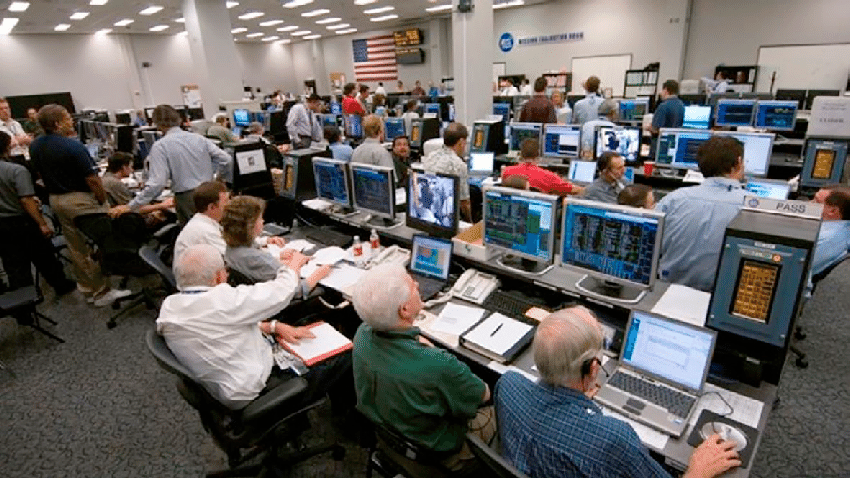Back when I was a younger software engineer, I had the privilege of writing software for the Space Shuttle onboard systems. I also supported Shuttle missions in real-time as part of the Backroom team in the Mission Evaluation Room (MER). It was an incredible experience where engineers, including myself, provided critical support to the Mission Control Center (MCC), often referred to as the Frontroom, the large room with flight controllers that you see on TV.
The role of Mission Evaluation Room (MER) engineers is to provide engineering support during Space Shuttle missions, for Space Shuttle systems. These engineers are concerned with ensuring that the systems for which they are responsible function reliably, and as intended. The MER is a central facility from which engineers may work, in fulfilling this obligation. Engineers participate in real-time monitoring of shuttle telemetry data and provide a variety of analyses associated with the operation of the shuttle. — see Source.
The MER had a motto prominently displayed on the wall, right behind the MER leads’ desk area, which shaped the rest of my professional career: “In God we trust; all others must bring data.”
This phrase, originally attributed to W. Edwards Deming (Wikipedia), underscores the importance of empirical evidence in decision-making. Deming, a renowned statistician and quality control expert, emphasized the need for data-driven approaches in business and engineering. The motto resonates deeply in the field of software engineering, emphasizing that trust and credibility are built on the foundation of solid data.
In software development, this principle translates to a rigorous approach to problem-solving. It means conducting thorough research, understanding and quantifying issues, and effectively communicating findings. By relying on data, engineers can make informed decisions, identify potential issues early, and implement solutions that are both effective and efficient.
The application of this motto in my work with the Space Shuttle onboard software was paramount. The complexity and critical nature of space missions necessitated a meticulous approach. Every piece of software had to be tested, verified, and validated with precise data to ensure the safety and success of the mission. This experience instilled in me the importance of data-driven engineering, a principle I have carried throughout my career.
“In God we trust; all others must bring data” serves as a constant reminder that in engineering, intuition and experience are valuable, but they must be backed by data. It fosters a culture of accountability and continuous improvement, driving engineers to seek evidence, validate assumptions, and strive for excellence in their work.
